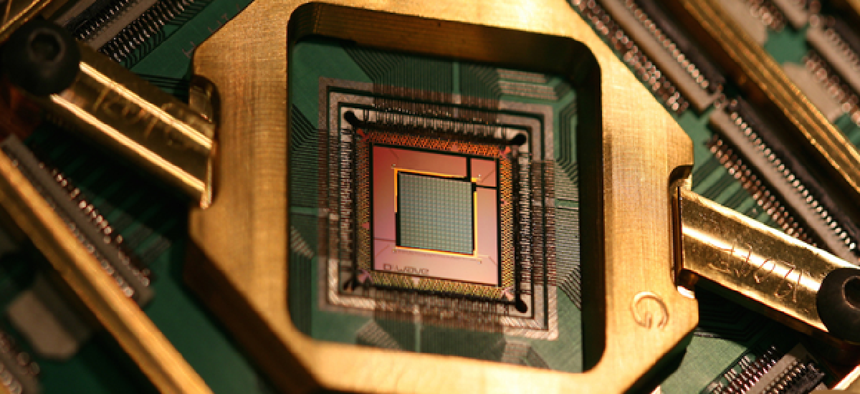Virginia Tech, D-Wave quantum center targets defense, intell

D-Wave will work with Virginia Tech to train its staff, faculty and affiliates in the intelligence and defense communities to build new applications and software tools for its quantum computers.
To give defense and intelligence community researchers access to quantum computers, D-Wave and Virginia Tech have announced a partnership to create a permanent quantum computing center at VT’s Hume Center for National Security and Technology.
Under the agreement, D-Wave will work with Virginia Tech to train its staff, faculty and affiliates to build new applications and software tools for D-Wave’s quantum machines. Participants will be selected by Virginia Tech and include experts in artificial intelligence, machine learning, optimization and sampling.
As researchers get more familiar with the D-Wave system, the company expects that to lead to other application oriented projects for VT, Hume and their colleagues in the government and elsewhere, D-Wave International President Bo Ewald said in an email.
VT’s Hume Center focuses on cybersecurity and autonomy in national and homeland security and is currently researching cyber-physical system security, orchestrated missions and the convergence of cyber warfare and electronic warfare. Both the Blacksburg and Arlington Hume Center campuses will have access to the D-Wave machine, initially via the D-Wave cloud access software until a D-Wave machine at the Hume Center is implemented, Ewald said.
“With potential applications in optimization, machine learning and sampling, and cybersecurity, we expect D-Wave systems will be used in a hybrid mode with conventional computers much as GPUs originally served only graphical processing requirements,” Ewald said.
The company expects to build on its base of government customers that include Lockheed Martin, NASA’s Ames Research Center, Los Alamos National Laboratory and Temporal Defense Systems, which recently purchased D-Wave’s latest quantum machine, the 2000Q, to solve complex cybersecurity problems affecting governments and commercial enterprises.
“Both D-Wave and Virginia Tech recognize how vital it is that quantum computing be accessible to a broad community of experts focused on solving real-world problems,” Ewald said in the announcement. “One of the many reasons we chose to work with Virginia Tech is their strong relationship with the intelligence and defense communities. A key area of focus will be to work with federal agencies towards the creation of a quantum computing center at the Hume Center.”
In work that might benefit city governments, D-Wave also announced that it is working with Volkswagen to solve traffic optimization problems. IT experts from the Volkswagen labs in San Francisco and Munich have developed a smart mobility program on the D-Wave quantum computer that optimized the travel time of all 10,000 public taxis in Beijing, Volkswagen said.
D-Wave also announced that the 500-qubit D-Wave 2X quantum computer used by Google, NASA, and Universities Space Research Association (USRA) will be upgraded to the new D-Wave 2000Q system, under the terms of their multi-year agreement, to support research on how quantum computing can be applied to artificial intelligence, machine learning and difficult optimization problems.
Since 2013, when the first D-Wave system was installed at Ames, scientists at Google, NASA, and USRA have been using it for a broad range of complex problems such as web search, speech recognition, planning and scheduling, air-traffic management, robotic missions to other planets, and support operations in mission control centers.
“Through USRA, the broader research community can get access to D-Wave’s state-of-the-art quantum computer, and collaborate with scientists at NASA, Google, and other universities,” said David Bell, Director, USRA’s Research Institute for Advanced Computer Science. “Since the installation of the first D-Wave system in 2013, researchers from around the world have been able to conduct cutting-edge research using technology unavailable elsewhere.”
The D-Wave 2000Q system will be installed at Ames later this year.
NEXT STORY: Maryland to move human services to the cloud






